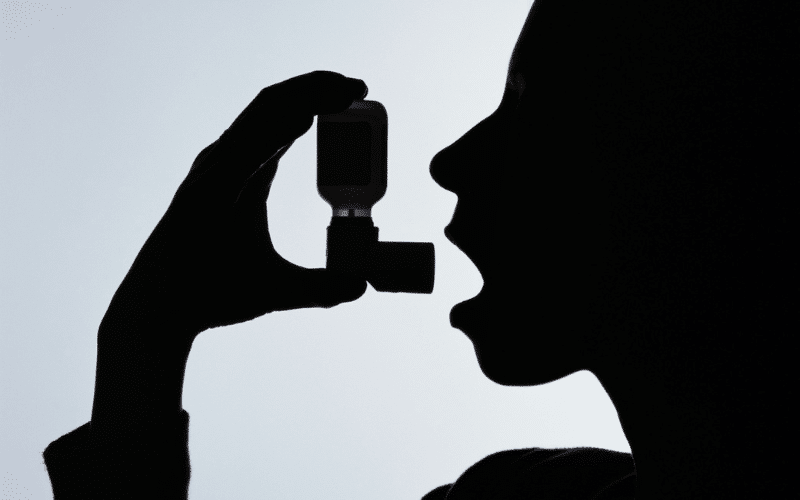Symptom 8: Nocturnal Asthma

Nocturnal asthma refers to the worsening of asthma symptoms during the night. People with nocturnal asthma may experience increased coughing, wheezing, shortness of breath, and chest tightness while sleeping. This can lead to disrupted sleep, resulting in fatigue and reduced quality of life during the day.
Several factors may contribute to nocturnal asthma, including allergens and irritants in the bedroom, lying down, which can put pressure on the chest, and changes in hormone levels that affect airway inflammation. Additionally, nighttime acid reflux can exacerbate asthma symptoms by irritating the airways.
To manage nocturnal asthma, it’s important to follow a prescribed treatment plan, maintain a consistent sleep routine, and address potential triggers in the sleeping environment. This may include using hypoallergenic bedding, keeping pets out of the bedroom, and using a humidifier to maintain optimal humidity levels. (8)